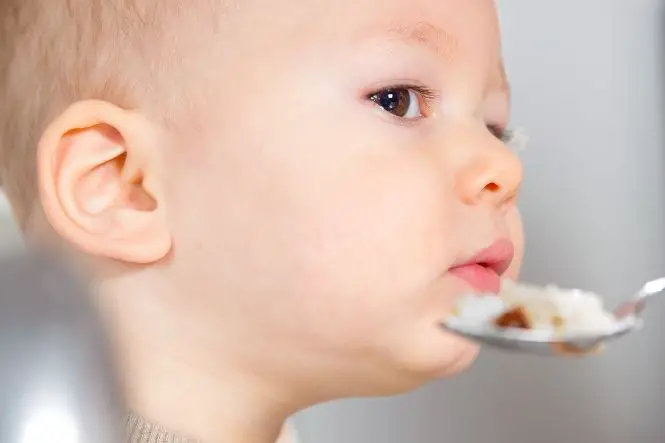Read this article to learn why your baby is eating less after shots, what you can do to comfort them, and the symptoms to look for.
If you’re wondering why is your baby not eating after shots, it’s normal for babies to eat less during the first 24 hours after getting a vaccination. Keep an eye on any symptoms that might appear over the next few days. If you see anything that causes concern, contact your baby’s doctor.
It’s normal for your infant to
have less appetite after getting their vaccines, and try to offer them breastmilk or formula more often to counter shorter feeding sessions. It can also be comforting for your baby to stay close to you, like breastfeeding, as there is always some discomfort around getting a vaccination.
You should also ensure that you read the vaccine information sheet from your baby’s doctor, which will tell you of any side effects to look for. Knowing what symptoms are typical and should be concerning is essential to keeping your baby healthy post-vaccine. If you have any questions or concerns, you should contact your baby’s doctor.
Symptoms to Watch for After Baby’s Vaccines
Your baby’s immune system will react to the vaccine resulting in some side effects. Minor reactions like loss of appetite or redness around the injections site are encouraging signs their immune system is working. The vaccine information sheet will give you the best information about possible side effects for the specific vaccines given to your baby.
Some minor side effects that you should expect:
- Redness around the injection area
- Mild fever
- Fussiness
- Eating less
While serious side effects are rare, it’s essential to have an idea of what to look for so you can act accordingly if you need to. You or another caregiver should be watching your baby over the next few days for signs that the side effects are changing or lingering longer than they should.
Some severe side effects are:
- Crying inconsolably for three hours or more
- High fever
- Seizures
- Swelling of the face
- Limpness
If your baby is showing any signs from the above list, seek immediate medical help.
How to Soothe After Vaccines
Now that your baby has their vaccinations, you need to ensure that you know how to comfort them. Failing to comfort your baby during and after vaccines can result in your baby developing a fear of doctors and needles. Easing the pain of injections can prevent medical phobias later in life.
Most parents want to reduce their babies’ pain and stress while getting vaccines, but few know where to start or even what effect methods to try. Thanks to a study by the Canadian Institutes of Health Research, there are research-based methods that you can try with your baby to help reduce pain.
Some tips for how to comfort your baby after vaccines:
- Cuddling while feeding: Holding your baby on your lap while getting their vaccine is an effective way to reduce pain. Letting them nurse or suck on a pacifier can also reduce stress. You will also want to give plenty of cuddles afterward to comfort them.
- Ask about a topical anesthetic: Infants can be very sensitive to the pain caused by vaccines, so ask your pediatrician about getting a topical anesthetic if you know your baby could benefit from it. Generally, you will need to put the cream on the skin one hour before the injection but ensure that you follow the specific instructions for your anesthetic.
- Be calm: Babies can pick up on the parent’s emotional state they are with, so ensure that you are remaining calm throughout the vaccine process. It’s also essential that you aren’t overly apologetic, as this can infer that your infant is going through something they shouldn’t.
- Have acetaminophen ready: Acetaminophen is an infant-safe painkiller such as infant Tylenol. If you find that your baby is inconsolable after the vaccines, then you can give them one of these painkillers. Note that you shouldn’t give them painkillers before the injection.
- Acetaminophen is also helpful in reducing fever which is one of the minor side effects infants can experience after a vaccination. Ibuprofen found in things like Advil and Motrin can also help with fevers. Talk to your doctor if you’re unsure which to use.
- Offer feeding more often: Your baby will not have the appetite they usually do, so you must offer them feeding sessions to ensure that they are still getting the nutrient they need. This is especially important as their immune system actives to deal with the injection and any other minor side effects they might have.
- Offer a massage: A massage to your baby’s legs immediately after the vaccine can help dull the pain. Ensure that you are educating yourself on how to properly perform a baby massage beforehand so you can use this tactic if you need to.
- Swaddle: Snuggling up with your infant with a swaddle is a great way to make them feel more secure. Swaddling your baby for sleep can also help comfort them as it feels like being held and may help them sleep longer.
- Try a front carrier or sling: Similar to swaddling, wearing your baby in a front carrier or sling is an excellent way of keeping them close as they go through the discomfort and side effects of vaccines while still allowing you to move around and have your hands free. It also allows you to keep an eye on them for new symptoms throughout the day.
This list is by no means exhaustive. You can always pull from your knowledge of your baby and what they find comforting, or you can talk to your doctor for other ideas. The important thing is that you try your best to make getting vaccines as tolerable an experience as possible.
Conclusion
Babies are likely to have less appetite after getting their vaccines. This is an average side effect of vaccinations, and you should plan to offer feeding sessions more frequently to encourage your baby to take breast milk or a bottle. You should also expect a level of fussiness and some redness around where they got the vaccine, as these are also normal reactions.






